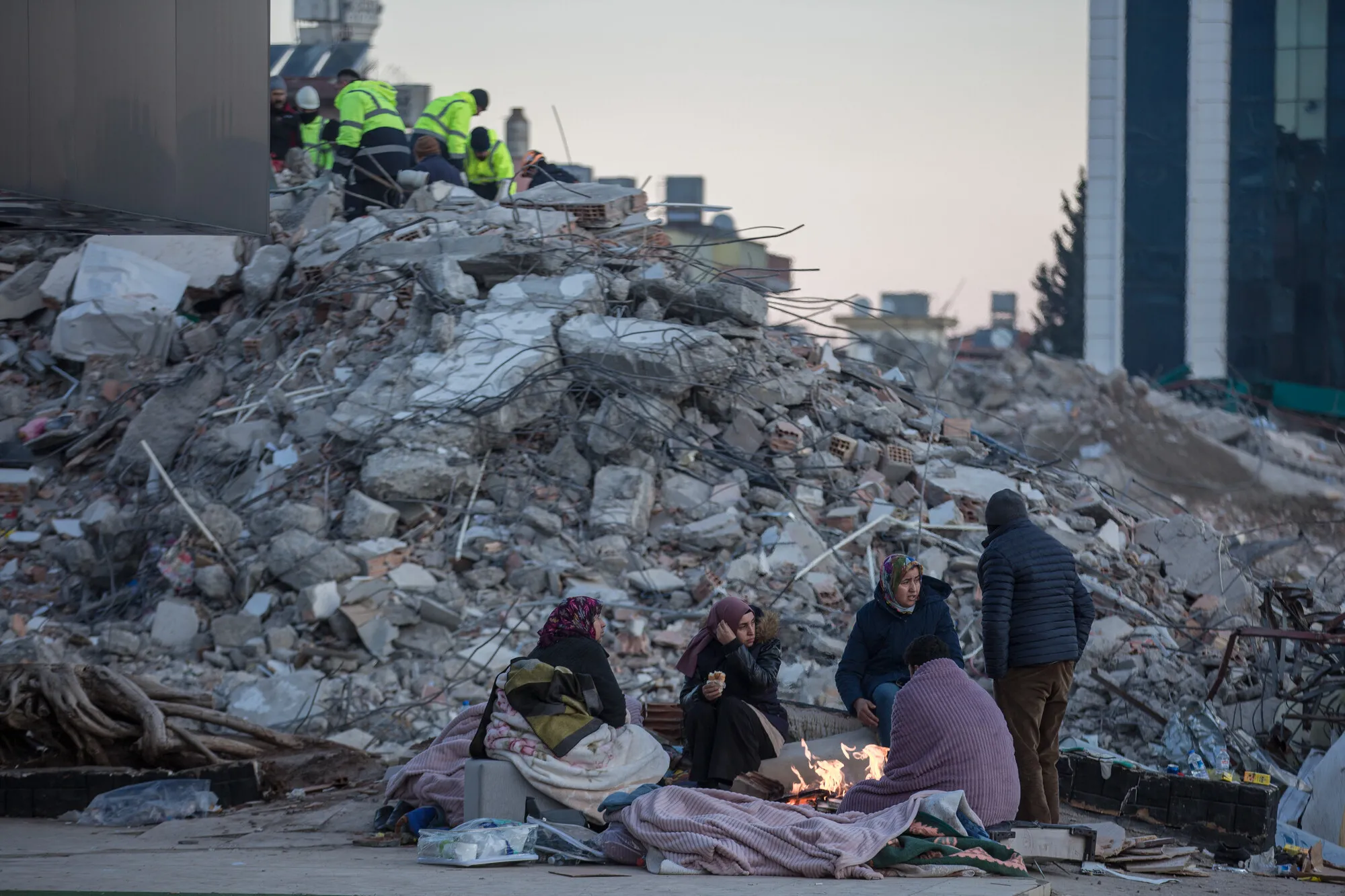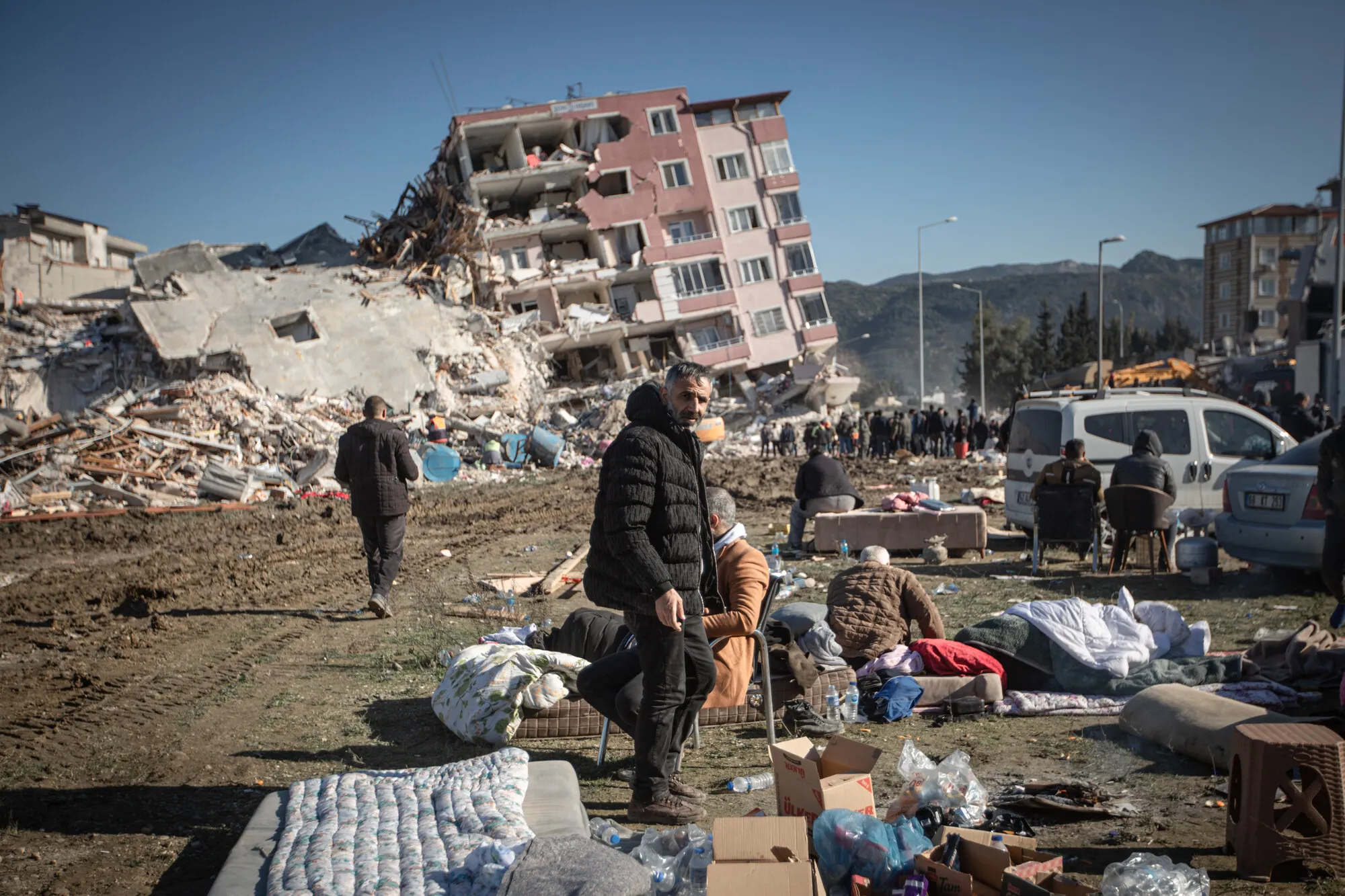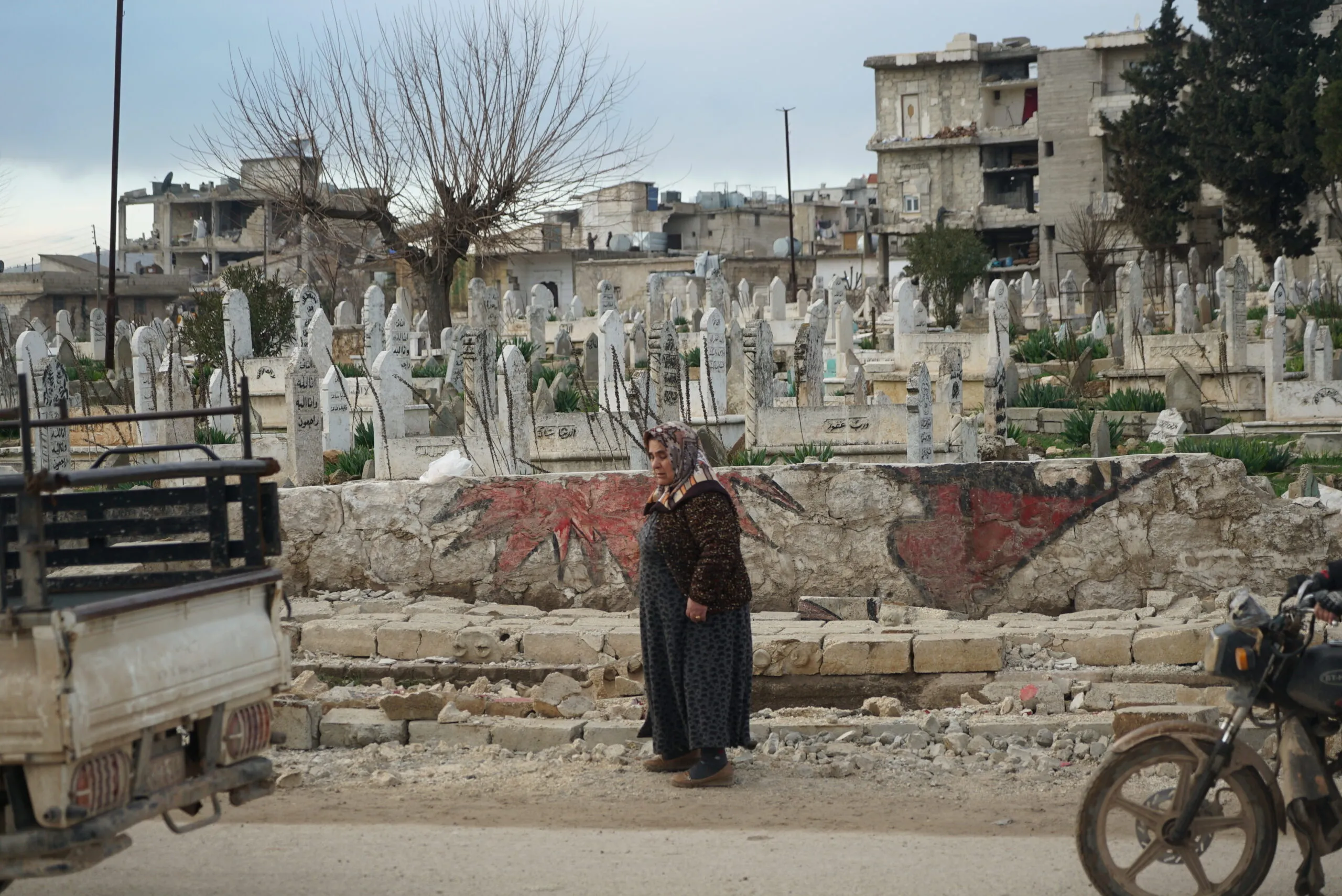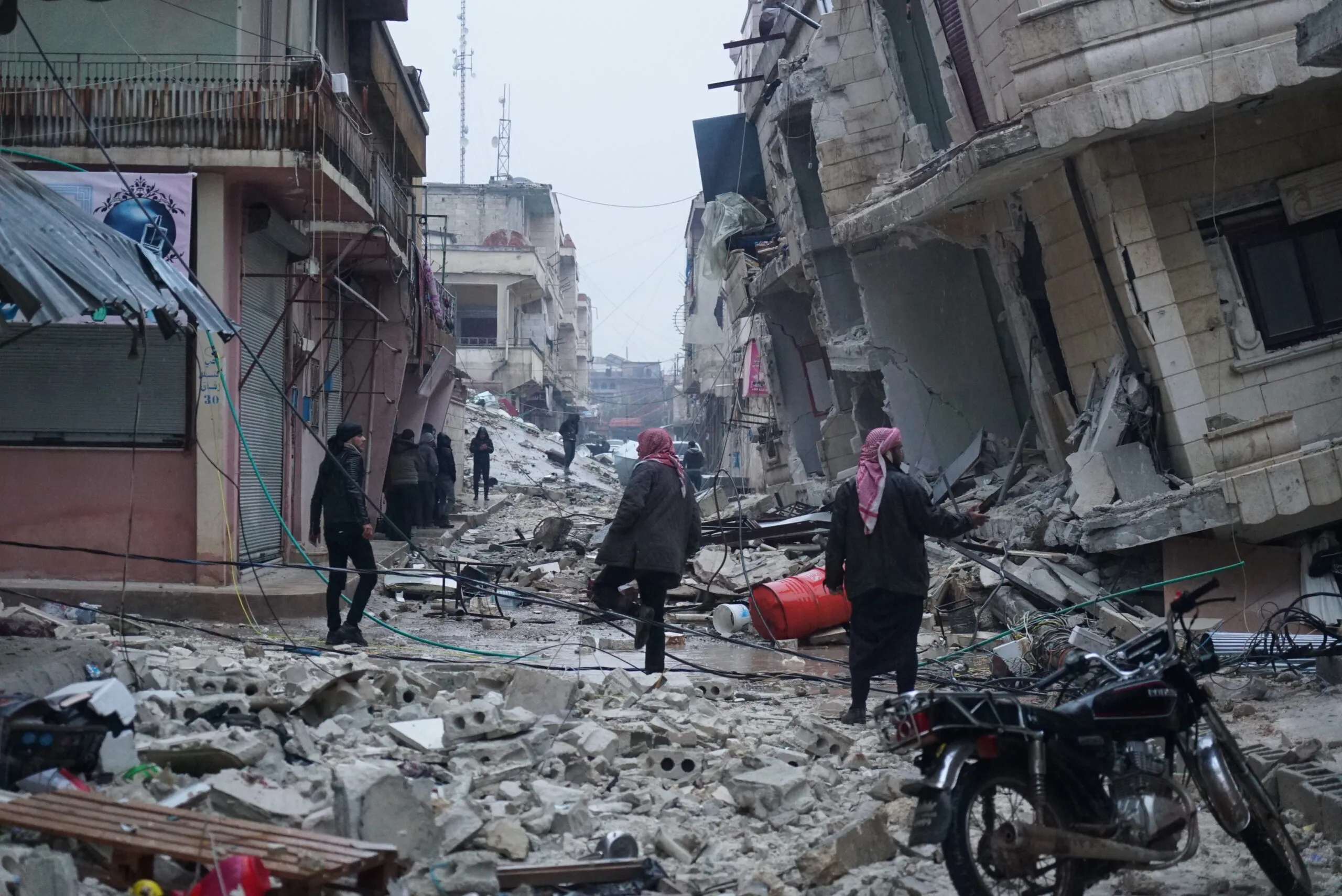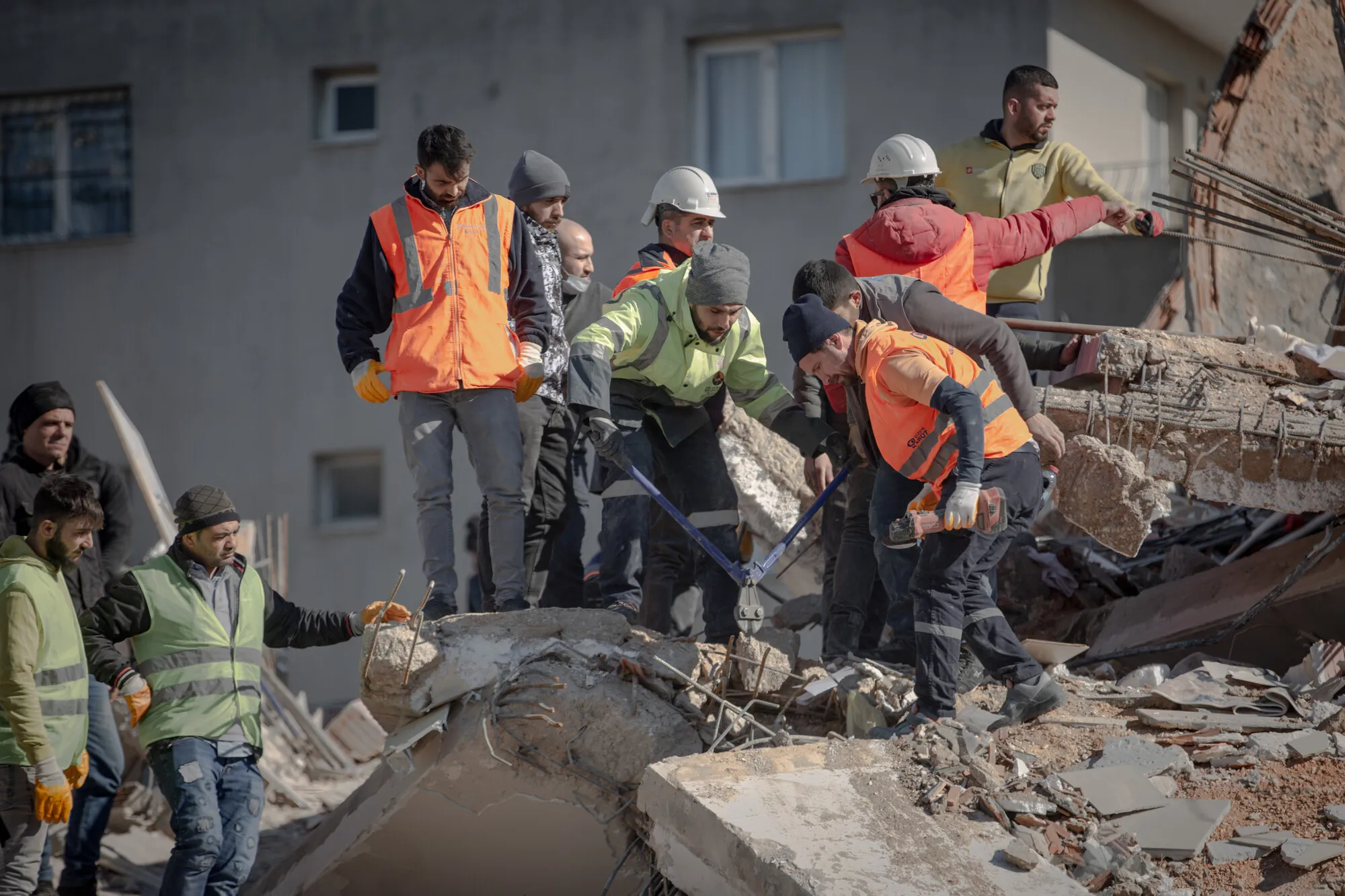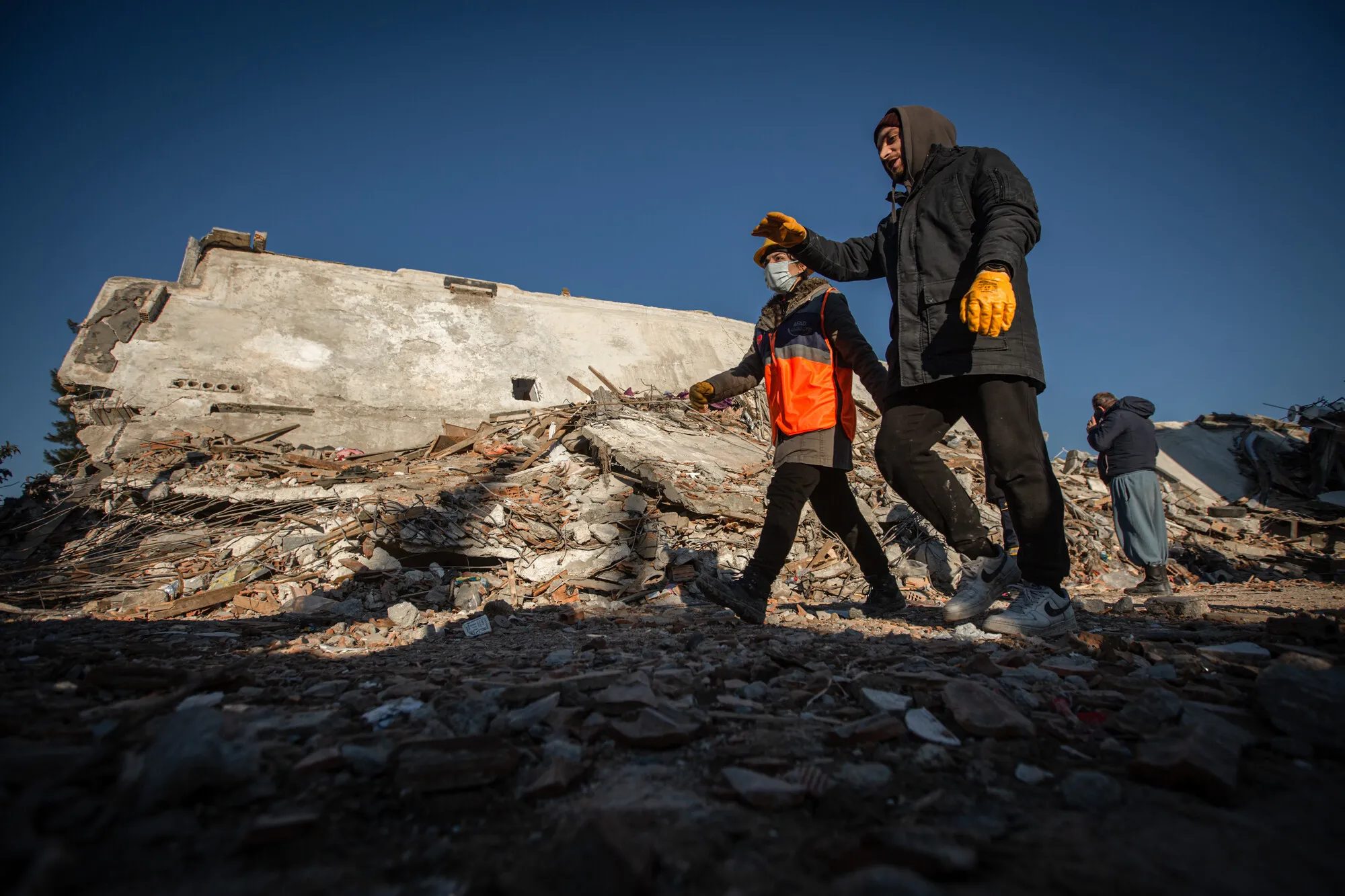CARE Germany program officer Rami Araban is with his family in a temporary shelter in Gaziantep, the city in southern Turkey (Türkiye) where a 7.8 magnitude earthquake struck early Monday morning.
Hundreds of aftershocks have continued to affect the region throughout the week, and government officials have estimated as of Thursday morning that the combined death toll is near 20,000.
“No one can currently go back to the apartments, because it’s not safe enough,” Araban said. “When I talk to the families staying here, for most of them the goal is to leave the city. There is no other possible way to stay here.”

